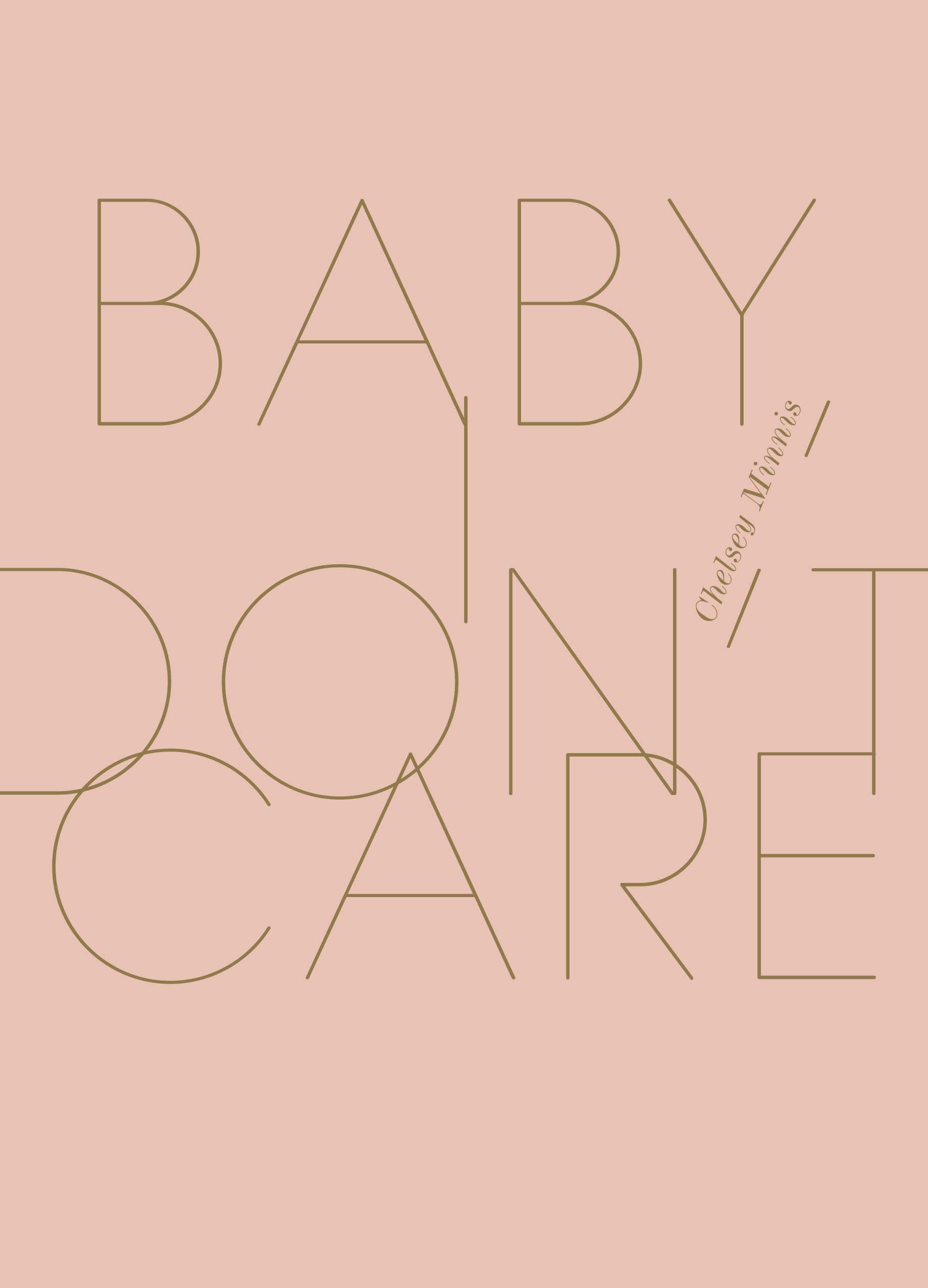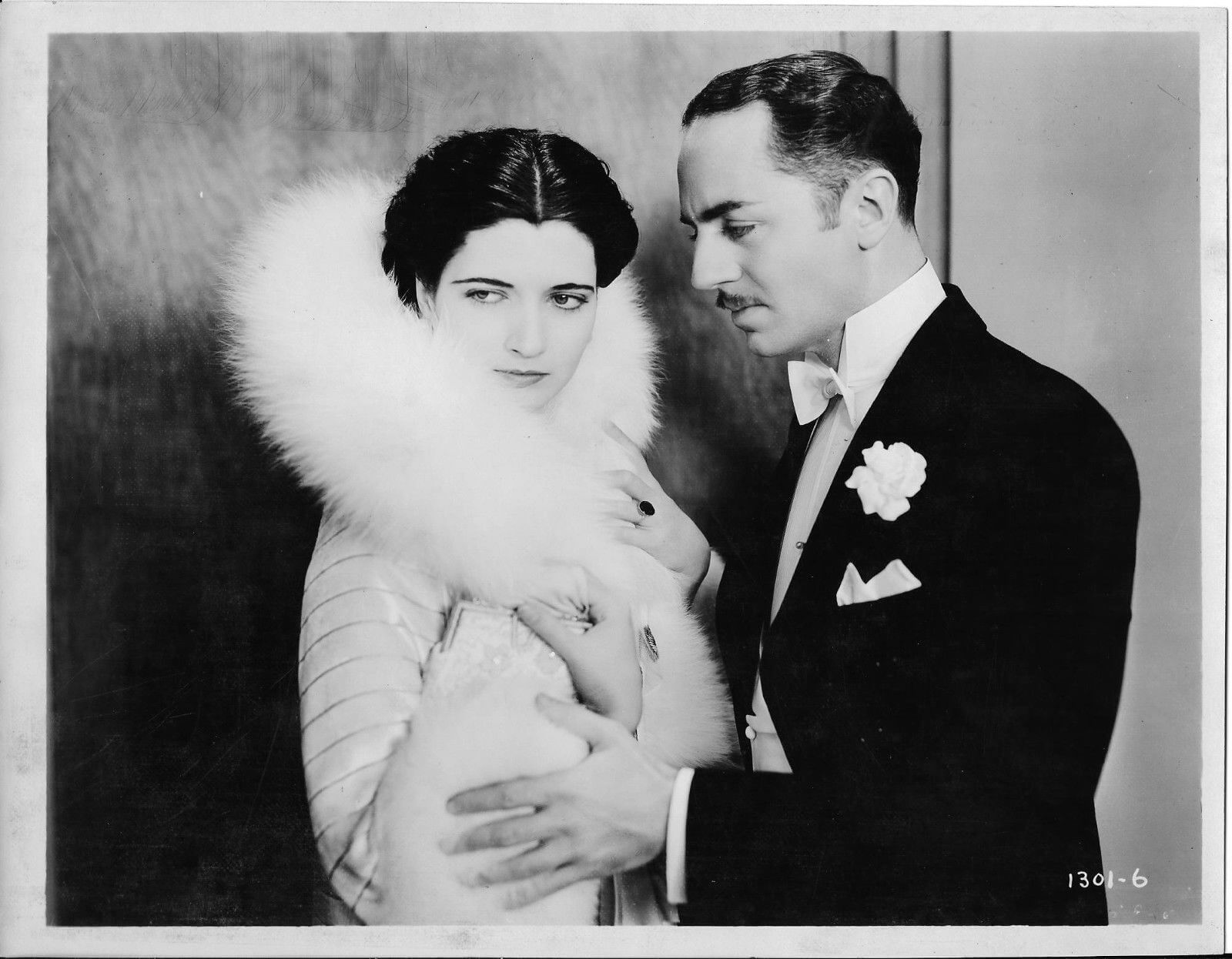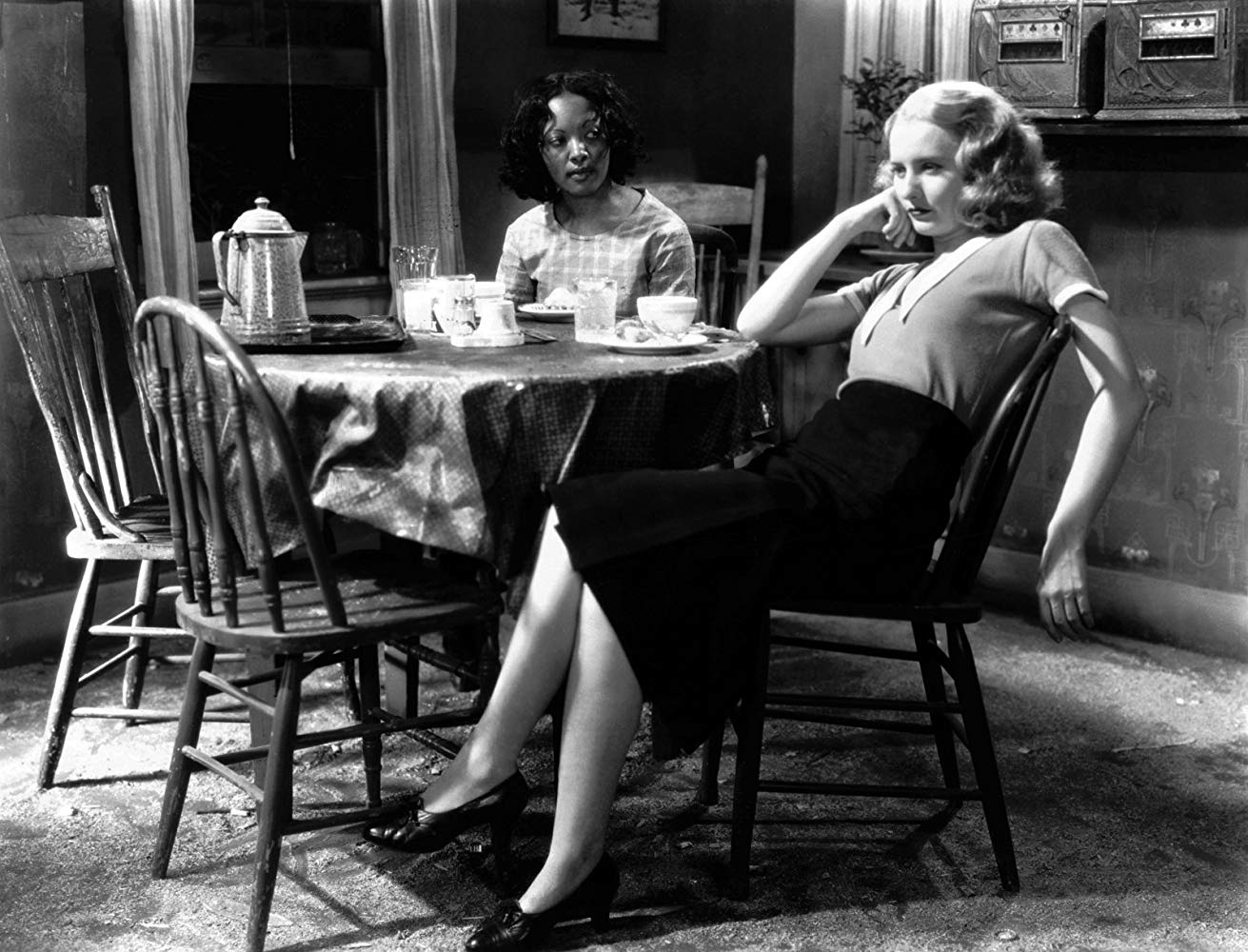Chelsey Minnis Understands What Is Expected of Her
Ana Cecilia Alvarez
August 13, 2019

I searched for the poet Chelsey Minnis on a PDF torrent site. Only one of her books had been uploaded: BAD BAD, her second collection from 2007. A brief description of the book was included:
... INDULGENT AND MELANCHOLY ... MOMENTS OF EXTREME MORBIDITY AND ANGER ... HER POEMS TAKE SOME GETTING USED TO ... MANY WON'T FIND HER ... ACCEPTABLE AT ALL
This description of her poetry could be a Minnis poem itself. Her body of work—spanning five books—is irreverent, darkly humorous, and bitingly seductive, often mimicked, and still, entirely distinct. “I can only write poetry that is like a tuba covered with blood...” she writes. “You can say many nasty things about poetry if you like... / But Chelsey understands what is expected of her!”
In her words, she writes “aggro” poems, and yet, is something of an enigma. She has no internet presence, does not hold any professional titles related to writing, and, as far as I can tell, lives in Colorado. Chelsey Minnis might not be her legal name. (Minnis is a rather adequate mondegreen for her poems, and perhaps, her persona: menace.)
Her work gets passed on by word of mouth. Cultish fandom ensues. Certainly, getting into Chelsey Minnis is something of an indoctrination. I first read Poemland, her third book, after it was assigned in a class. “This is a cut down chandelier,” it opens. “And it is like coughing at the piano before you start playing a terrible waltz.” The book’s cover is entirely filled with an image of a pink, furry surface. (A certain off-kilter-kitsch aesthetic is used to market all her poems. BAD BAD boasts a grotesquely cute hand-drawing of the title in goth lettering above a double-headed Bambi.)
Last year, she published Baby, I Don’t Care. The title quotes Robert Mitchum in Jacques Tourneur’s 1947 film Out of the Past (Mitchum plays a private eye in love with a gangster’s ex-girlfriend he tracked down in Acapulco). The poems in Baby, I Don’t Care read as a demented pantomime of this and other classic films, as if the films were muted and someone had drunkenly subtitled every scene. They are sequenced as if to mime a noirish plot:
SEDUCTION / ARRANGEMENTS / DEATH / DRINKING / FIGHTS / THREATS / REGRET / THREATS 2 / MURDER. “Baby, I might not be any good,” she writes in LAZINESS, “The only thing I do is write down words. / I make it special though, don’t I?”
When this year’s Pulitzers were announced, poet and critic Dan Chiasson, a judge for the Poetry Prize, posted the longlist on Twitter; Minnis was on it. The recognition seems incongruous to Minnis’s consistent taunting, if cheeky, effacement of poetry’s value. Poets are “like someone yelling and waving their lollipop around,” and writing poetry “like crying because you don’t like the wallpaper.”
Poetry is “getting hit by a folding chair.” It is “being held by your braids.” She frames its glamour and percussive oddity, calling poetry “a shimmer like flushing sequins down the toilet” or “very obscenely old fashioned like an old fashioned stripper” or “like fruit cocktail thrown at a mirror.”
Of course, her deviance only makes the poems that much better. “Maybe I’m a dumb baby...,” she writes, “but I like to get away with it." And she does, she does. –ACA
As a sentiment and gesture, there is something very punk about Baby, I Don’t Care. Even the title performs this indifference.
The title for this book was in my brain for a couple of years. And then it went to press, right when the whole Melania Zara coat thing happened. (It said, “I really don’t care. Do you?” on the back.) Always, in my life, I’ve been very critical of other people’s book titles. It’s this area where I allow myself to be extravagantly critical. And now, this happened to me, and it has humbled me. It is also ironic that frankly it is the most politically intense I’ve felt in my life. As a human being and citizen—not necessarily as a poet—I really do care. It seems like things are getting even worse now. Things seemed so horrifying then and yet now obviously it’s gotten even worse.
The line itself is a line from a movie I really love. When you’re writing poems, at least for me, I get blind, deaf, and dumb. I don’t know what is going, but I go ahead and write it the way I want to. I have to block out a lot because otherwise the self-criticism in my analysis would erode away the whole poem. For me that line became something I could hold on to. When I come back to it and try to give an intelligent analysis of what it means, I am second rate at that because that’s not really what I do. I come at it trying to write the poem.
BAD BAD, your previous book, explicitly rejects the professionalism impulse, at least within the practice of poetry. I am thinking, of course, of your poem “ANTI VITAE,” which is the paradigm of “how she didn’t get it done.” An excerpt, for the uninitiated:
1977 - 1984
Nothing of interest.
1984
Performed poorly in math. Taken aside by math teacher.
Receded into mediocrity of math.
D+ in conduct.
1985 - 1988
College application rejected by Cornell, Tufts, Northwestern
University Dartmouth, etc...
45% in math.
1989
Failed to appear for graduate creative writing workshop. Class
discusses poem without me.
Mispronounce “Kant.”
1990
Unimpressive academic performance. Idle.
Lose essay contest.
Fail to get any recommendations from professors for graduate
school. All applications rejected.
1991 - 1992
Mental Health questioned.
I read another interview you did where the interviewer described reading this poem as a form of, all things, self-care! There is something reparative in that, throughout your work, you model a casting off of the anxious idealism of success, even while one is still wrapped up in its hold.
As a poet, when I, say, go to a party and people ask what I do, I have a moment of shame, where I am trying to explain what it is, and end up feeling like a failure. But now, I know that’s what has to happen so that I can actually do the thing I want to do. It’s a fair trade actually. I am happy being unimpressive if it means I get to sit around and write poems all day.

Right, that indifference to success frees you up to actually do the work.
Yes, it creates a mental shelter. But at the same time when you are writing a poem you still want to just destroy everyone with them. You want them to be good. You can still have that energy. There’s also shame around that. I remember when I was in graduate school there was this attitude of, “don’t showboat, don’t put your best poems into the workshop.” And I thought, “excuse me? If you think I am going to hold back for one second and not make everyone feel totally insecure, you’re crazy.” [Laughs.]
I was completely immature, shallow, vain, striving, but that was part of the writing urge, too. I didn’t want to get rid of that. In school I was supposed to hide that, and pretend there was some higher calling. But I didn’t know what that higher calling could possibly be. Sometimes that’s how it is. If I could write poems about the Climate Crisis, if I could write those poems, I’d really want to write them, but can I, or can everyone writes those? I don’t know. I don't think I can.
Not-caring aside, what’s your relationship to rigor in your writing?
It feels like I either overwork and underwork my poetry but I am not sure if that’s the same thing as rigor. Sometimes I really like writing. It’s my favorite thing to do, and so I push on it really hard and then I get sick of it and become undisciplined. I go between those two extremes… Now, as an adult, I’ve been writing screenplays. It’s been a great luxury for me to actually learn the rules that you are supposed to learn before you break them. To think, “I am going to do everything and be so…perfect.” But with poetry I’ve never felt that way. If Baby, I Don’t Care has any structure, it’s probably a screenplay’s structure, because that is the structure I decided to learn.
What are your screenplays about?
My first screenplays were really plot-heavy and completely nuts. I have this one where this woman gets hired to write the diary of a pampered cat, but then it turned into a murder mystery where a mountain climber’s brother commits suicide and she has to go into his home and write the diary of the cat as a way to figure out if the mountain climber had murdered his brother. [Laughs.] As I have written more screenplays, they've gotten surprisingly conventional. That feels like a triumph. I’ve written a couple of thrillers and the others are romantic comedies.
I really hope there is a future where I get to watch a romantic comedy you’ve written. Does your writing emanate from your relationship to film?
Something I would often go to the movies with my notebook and write in the theater. It’s been a progression that’s gotten more extreme. Soon, it became watching TV rather than going to the theater because I was watching Turner Movie Classics. I was always writing with the TV on. One day, I thought, “why am I even trying to interpret this? Why don’t I just write the exact lines down?”
I became so engrossed and obsessed with these movies and I started, in an almost megalomaniac way, to eliminate any separation between me and these films. They were so meaningful to me. I wanted to imitate them. I didn’t take any lines that were too signature, but I got the feeling of them, and then scrambled them up, and inserted my own lines. Now, I’ll be watching a movie, and I will hear a line, and think, “that's a line from my poem!”

Who are your favorite classic film performers?
One of the bigger names I like is Carole Lombard, and then I have these more minor favorites. I love Kay Francis. She was lanky and could wear anything so they would give her these enormous fur stoles that stuck straight out from her neck and she’d pull it off. She had a speech impediment and an androgynous quality to her. I love her. Ann Dvorak, who’s in Three on a Match.
Then there’s Theresa Harris, an African-American actress who is in basically everything, although we don’t get to see much of her. Her best role is probably Chico in Baby Face. Lynn Nottage wrote a play inspired by her called By the Way, Meet Vera Stark which I’m actually reading right now. Anna May Wong, obviously. I guess I have this weird thing for Teresa Wright, who is in Shadow of a Doubt, and had this very innocent face. Of the biggest of the big I like Ingrid Bergman and Lauren Bacall. But I love Elizabeth Taylor, too. I’ve gone through every obsession I can go through.
My husband can walk into a room and just from one glance at the screen he’ll be like, “Waterloo Bridge, again?” [Laughs.] Like what, there’s a limited number of times I should watch Waterloo Bridge?
A consistent quality of your poems is that they are fucking hilarious. Tell me about how you work with humor.
I think that it is probably just a reactionary practice, from being in workshop, and having this super-serious pretense of a higher calling. I felt completely not up to the task. And so I had to comfort myself by making bitterly cruel fun of everything I could. It’s just the only way to survive. It’s nervous response from feeling inadequate. A lot of poetry can’t afford to be funny because it’s carrying a mantle of greatness. And the only way you get to write that kind of poetry is if you’re christened. It’s so much responsibility, and I think, a shame. Why can’t poetry just be as superficial as any other aspect of culture?
Superficial, or violent even. I think there’s a constant thread of low-key/extravagant criminality in your work, but with, like, knives and feather boas. Do you think of your poems as violent in any way?
There’s so much violence in the culture, and it doesn’t feel right for that to be absent from poetry. I think it’s part of my work, too, to just keep things exciting. It’s part of the movies too.
Right. At its worst that display of violence can feel gratuitous.
But think how great it would be if there was a bunch of gratuitous violence in a poem! That would be my joy.